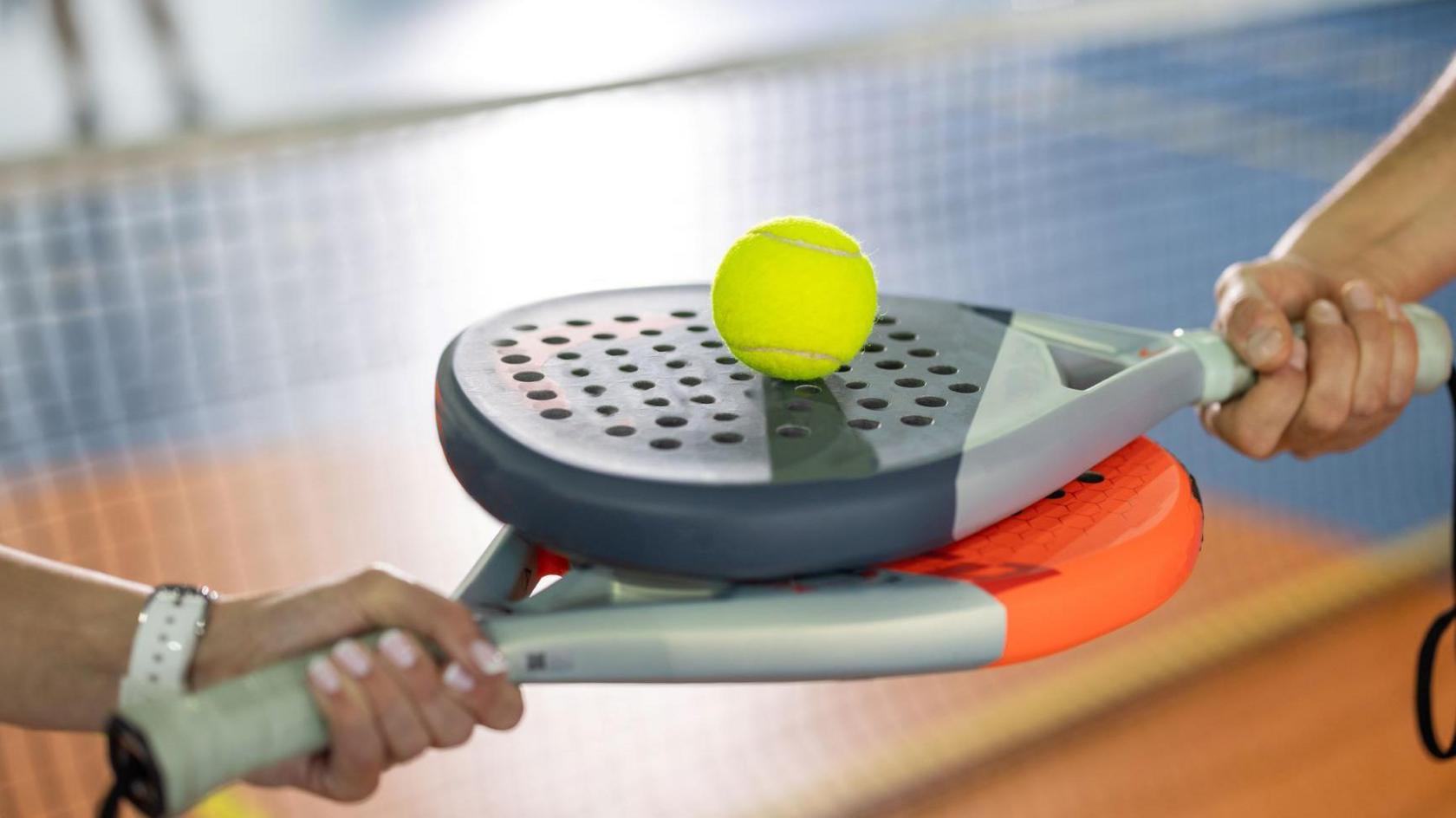Padel players fear lack of courts slowing growth
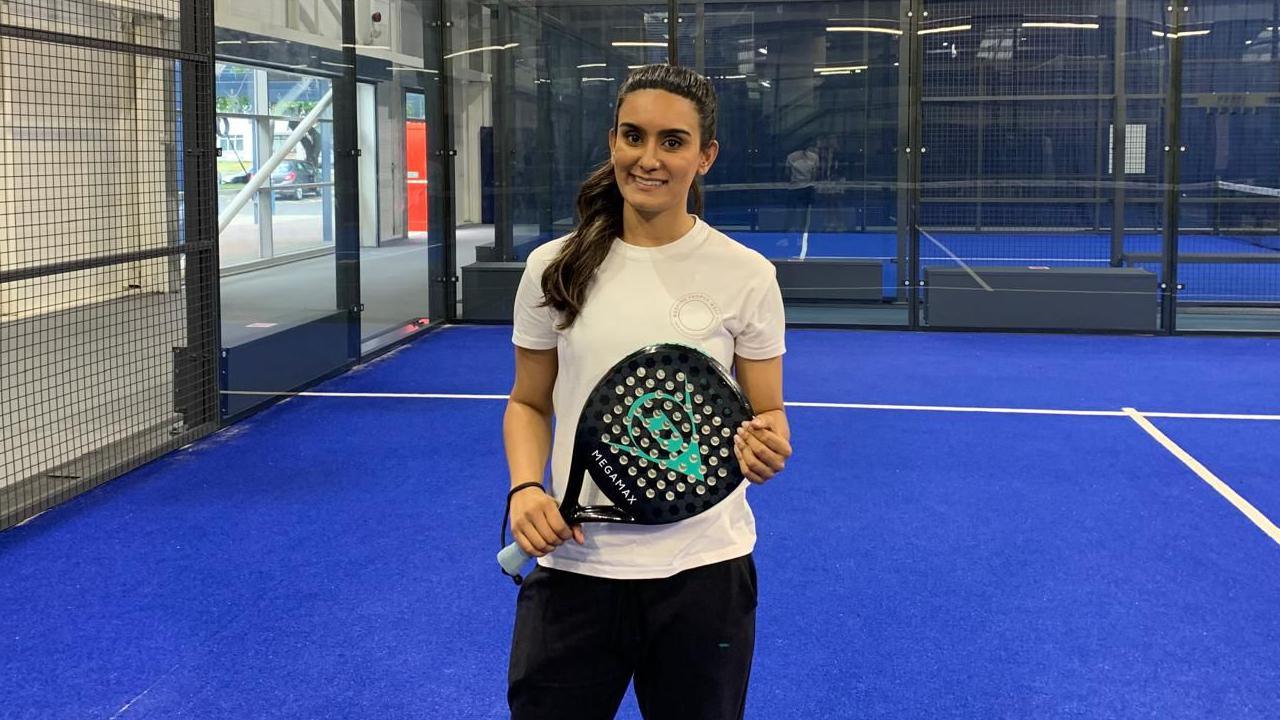
Kiranjit Janagal first started playing padel when the courts opened at Tipton Sports Academy
- Published
People playing padel in the West Midlands say they need more courts to be built or the growth of the sport will slow down.
The blend of tennis and squash has been growing in popularity in recent years and the Lawn Tennis Association (LTA) estimates, external there are currently about 800 courts and more than 400,000 players in Britain.
Three indoor courts have been opened in Tipton with bosses at Sandwell Leisure Trust saying they want to make the sport less expensive in the area.
Umar Razah uses them but wants to see more as he believes the lack of them "is impacting the growth of the sport".
The rise of padel and why it's so popular
- Attribution
- Published10 September 2024
"If there were more courts available, then more people would be out playing," he added, having said he saw them "everywhere" when working in the Middle East.
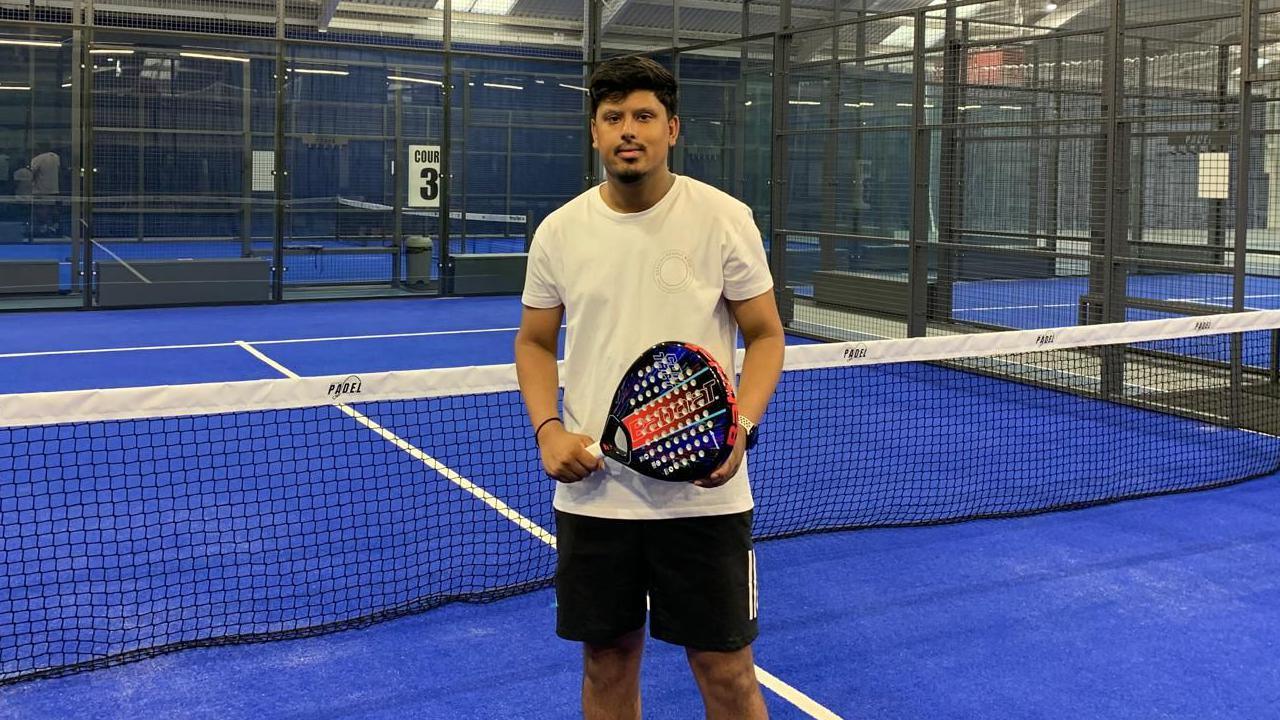
Umar Razah has played padel across the world and said he noticed a lack of courts available in the UK
The centre is one of the first in the country to offer padel facilities funded by a local council and chief executive Mark Braithwaite said it was key to make them available to people in the area.
"I didn't feel like there was anything accessible around here," he said.
"The closest venue was Edgbaston private members' club and you need to be a member to access that, so a lot of people just couldn't."
The new courts have encouraged a range of residents across the Black Country to pick up a padel, including Kiranjit Janagal, from Wolverhampton.
The 36-year-old has been playing weekly with her social fitness group Keeping People Well (KPW), which has seen an uptake in members since using the facilities.
"People can move around and connect," Ms Janagal said. "With this being 15 minutes away from my house, it's perfect for me."
Mr Razah has been helping people improve their skills and shots during some KPW sessions at the centre.
"You can put someone on a court who hasn't played before and because of the rules and the set-up of it, they can pick it up quite easily," the 26-year-old explained.
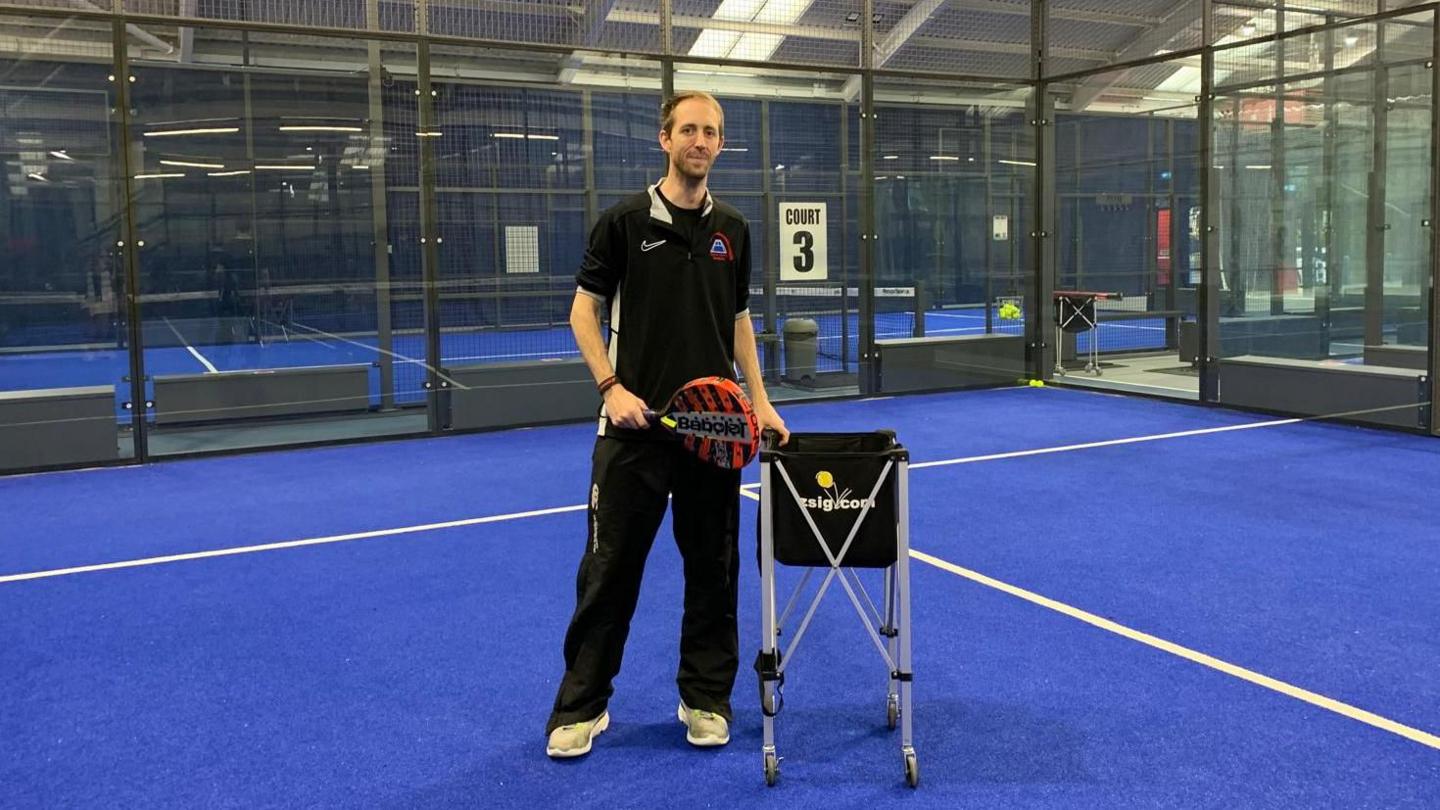
After being a tennis coach for 15 years, Jared Fellows trained to be a padel coach to help make use of the new facilities
But when organising padel events at different locations, Ms Janagal noticed booking fees were, she felt, set quite high online with no room for negotiation.
"Padel is quite an expensive sport," she said. "It's not affordable for everybody."
Mr Razah agreed: "The hourly rates need to be brought down."
"Depending on where you play, at times it can be 50 or 60 pounds an hour."
Before the courts were installed at the Tipton Sports Academy, tennis coach Jared Fellows was driving outside of the West Midlands to teach padel.
"I had to do training down in Bristol," he recalled. "I was travelling up to Derby to get practise in on the courts there before I could actually do my coaching."
Mr Fellows now lives a five-minute walk from the centre where he works as a padel coach.
The BBC tracked where courts can be found across Britain, using data from The Padel Directory, and discovered most are in traditionally wealthier areas, with the highest numbers in the south of England.
Furthermore, when councils across the UK were asked by the BBC if they have put money into providing padel facilities, only three said they have out of the 330 that responded.
The LTA has launched a five year padel strategy which aims to help make courts available for padel players in parks and leisure centres, alongside private sector one, according to Tom Murray, from the association.
"Ultimately it's up to the local authorities to strategically map out where and how many courts are appropriate for a particular area," he added.
"We're supporting them [local authorities] throughout their journey. That's going to result in greater participation."
When told about only three councils having invested in padel facilities in the UK, he replied: "If you were to check that stat in a couple weeks' time, it would be significantly different already. That's how fast things are growing."
For Ms Janagal, having this space in the Black Country has meant more people like herself have had the chance to try padel, marking a move towards inclusivity in the sport.
"It's important to change the narrative around padel because it's known for a certain demographic - people with money," she added.
Additional reporting by Lauren Woodhead
Get in touch
Tell us which stories we should cover in Birmingham and the Black Country
Follow BBC Birmingham on BBC Sounds, Facebook, external, X, external and Instagram, external.
Related topics
- Published9 June
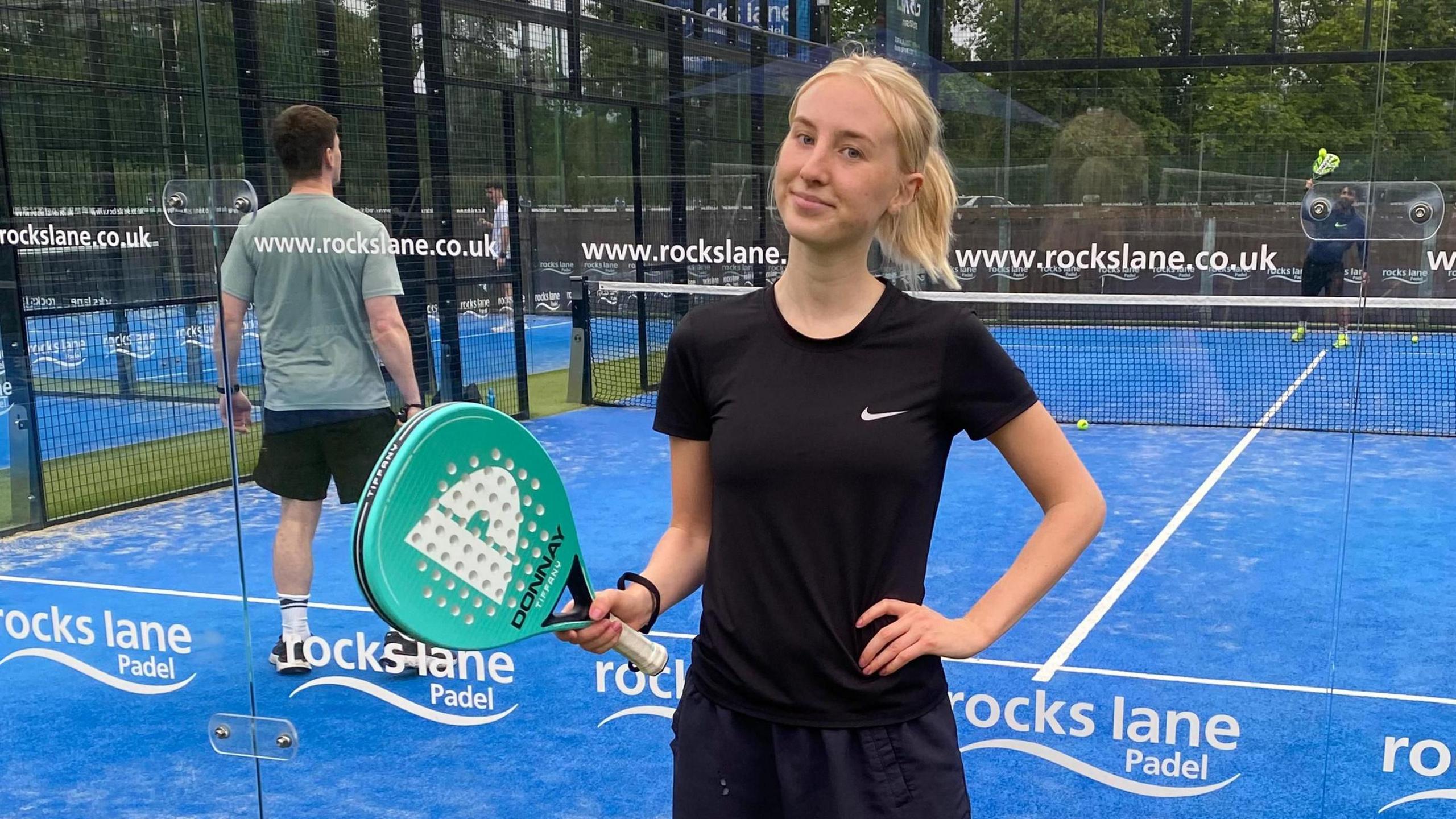
- Attribution
- Published10 September 2024
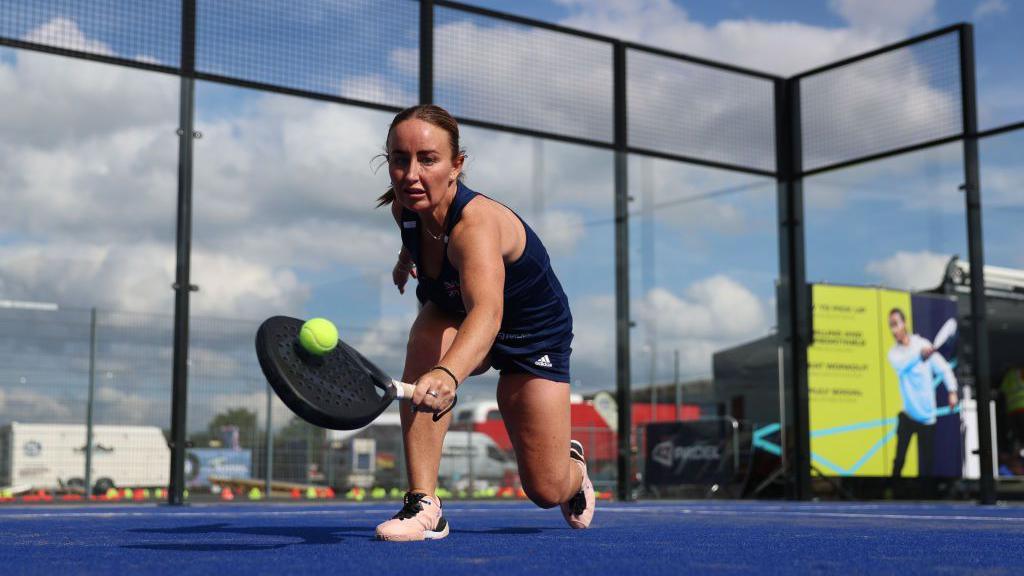
- Published21 March
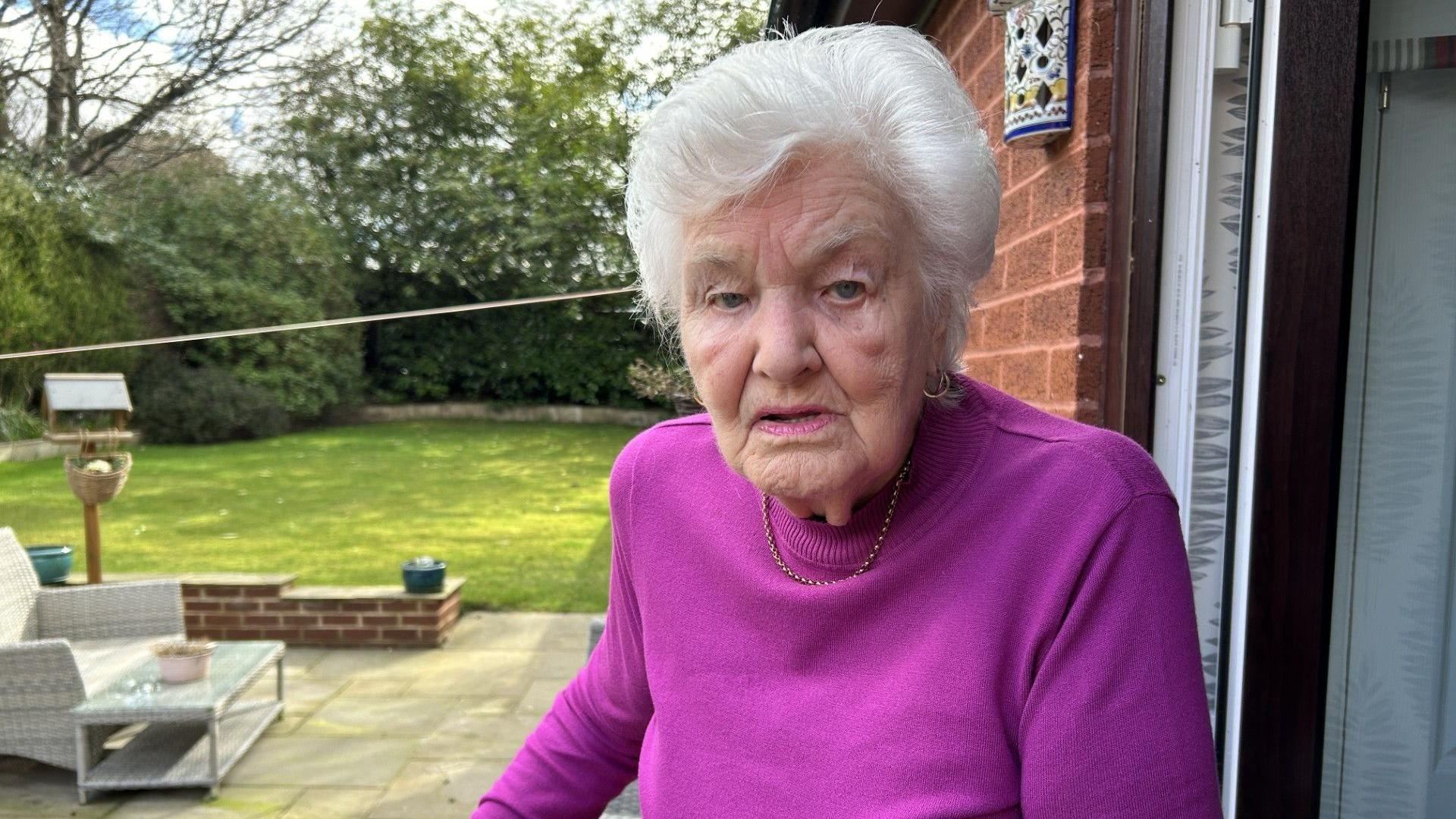
- Published1 June
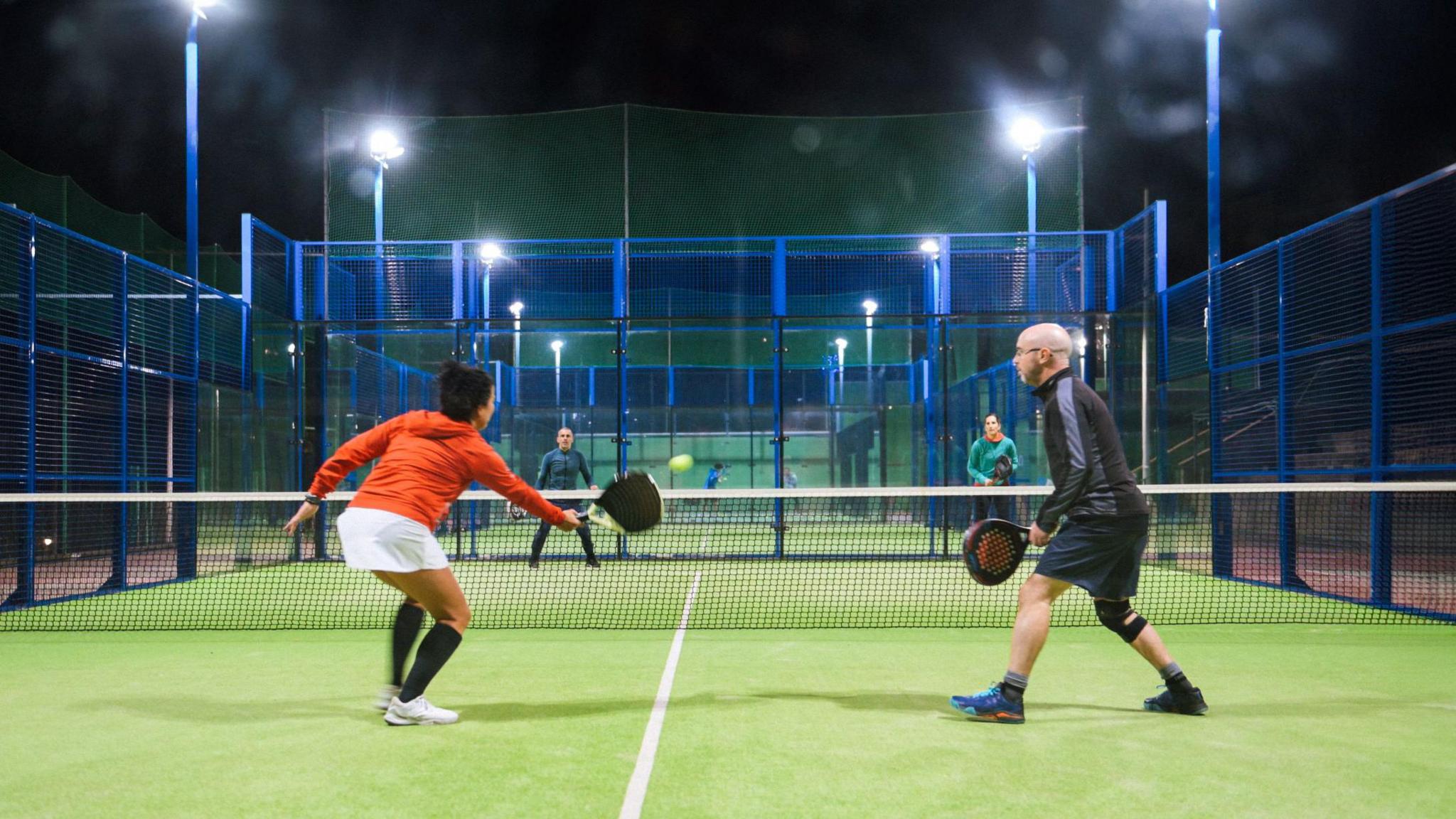
- Published5 February
